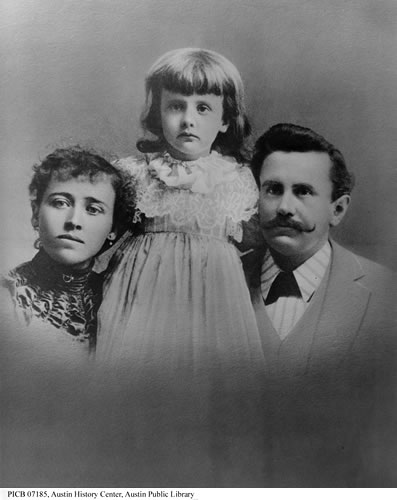024.
Spring Time. O Henry Story. Reintroduced By P S Remesh Chandran
Editor, Sahyadri Books & Bloom Books, Trivandrum
Image By Kirsten Ivatts0. Graphics: Adobe SP
First published: 6th Jun 2011.
Typewritten menus for a restaurant in exchange for three meals a day.
Life in distant farms in the countryside can be as calm, quiet and peaceful as a gently flowing river.
Heaven sent Dandelions to show how pleased and delighted the ethereal realms were with earth.

No human beings are left alone. Teardrops of a loner are wiped away by invisible hands.
It is an invisible God that leads the way and walks a few miles with us.
___________________________
Pictures Courtesy: Wikimedia Commons
___________________________
Tags
American Literature, American Writers, Appreciations, English Literature, English Short Stories, English Short Story Writers, O Henry, P S Remesh Chandran, Reviews, Sahyadri Books And Bloom Books Trivandrum, Short Stories, Spring Time, Stories, Studies, William Sydney Porter
Spring Time. O Henry Story. Reintroduced By P S Remesh Chandran
Editor, Sahyadri Books & Bloom Books, Trivandrum
Image By Kirsten Ivatts0. Graphics: Adobe SP
First published: 6th Jun 2011.
O. Henry’s stories are famous for the twist towards their end. William Sydney Porter was the real person behind this name. He wrote more than Two hundred short stories, almost all of them equally famous. His stories are noted for the great sympathy they show towards human life. Here in this story he is describing how the happiness of spring is returning to Sarah’s life after the cold of a winter.
Typewritten menus for a restaurant in exchange for three meals a day.
 |
| The O. Henry family in 1890s. |
Sarah made her living through type writing. In the cold winter times, food was a problem. She made an agreement with the Schulenburg (Shoolenberg) Restaurant near her home. According to the agreement she would type the bill of fares for their twenty one tables each day and they had to provide her with three meals a day. When spring finally arrived it had no character of a spring. The snow of January still lay there in the streets even though it was March. And spring was already delayed a little in that American City of Manhattan. When spring arrived, there were changes in the menu of the restaurant. Soups became lighter, meat dishes changed and fried foods altogether vanished.
Life in distant farms in the countryside can be as calm, quiet and peaceful as a gently flowing river.
 |
| Typing away dreams. |
While Sarah was typing the bill of fares for the restaurant, her mind flew back to the country side she visited during the last summer. Life in distant farms in the country side can be as calm, quiet and peaceful as a gently flowing river. After the tediousness and monotony of life in a city, the life in the country side seemed to her appealing and pleasant. She had there fallen in love with a young farmer by the name of Walter. He was a very clever and modern farmer who had a telephone in his cow-house. He could even calculate cleverly the effect of Canadian wheat crops on the American prices of commodities.
Heaven sent Dandelions to show how pleased and delighted the ethereal realms were with earth.

 |
| Distant farms can be as quiet as a flowing river. |
Sarah and Walter loved each other and he had decorated her hair with dandelion leaves and flowers as an expression of his love. She had left those flowers there for his caring and walked back home happily. We living in cities great and small can assume how much she might have wished to stay forever in those glens, vales and coves. How much will not an insecure girl wish for a safe and secure life under the protection of a loving husband! Her wishes were granted. They had agreed to get married in spring but he has not yet arrived in her town. She is awaiting him and she wept on her type writer.
No human beings are left alone. Teardrops of a loner are wiped away by invisible hands.
 |
| Two dandelion friends catching the Sun. |
In the evening the waiter from the restaurant brought Sarah’s food and the next day’s menu. While typing, a dish item in the menu caught her attention. It was ‘Dandelion with Eggs.’ Dandelions are not only a food but a symbol of love also. While typing, the very word Dandelion made her remember her long awaited lover and weep again. In her grief and tears a strange thing happened. One tear drop fell on the type written menu and one word was mistyped.
It is an invisible God that leads the way and walks a few miles with us.
 |
| The last Typewriter Factory closed in 2011 in India. |
The next day, Walter from the country side arrived Sarah’s town, Manhattan searching for her. She had moved from her old address and the letter she sent him from the new address unfortunately had not reached him. Therefore he was not in a position to know about her whereabouts. He by chance stepped into the Schulenburg Restaurant and was given a menu of that day’s dishes. But what a bill of fare! There was the all distinguishable mark of a tear drop on it. ‘Dearest Walter with Eggs’ typed in place of 'Dandelion with Eggs'. And there was the tell tale characteristic of his lover- the capital ‘W’ typed above the line! The instant he sighted this strange bill of fare, Walter knew who the typist who created this laughable thing was. Without waiting, obtaining her address from the restaurant, he rushed to her house.
 Image By Kirsten Ivatts0. Graphics: Adobe SP
Image By Kirsten Ivatts0. Graphics: Adobe SP
 Image By Kirsten Ivatts0. Graphics: Adobe SP
Image By Kirsten Ivatts0. Graphics: Adobe SP___________________________
Pictures Courtesy: Wikimedia Commons
___________________________
Tags
American Literature, American Writers, Appreciations, English Literature, English Short Stories, English Short Story Writers, O Henry, P S Remesh Chandran, Reviews, Sahyadri Books And Bloom Books Trivandrum, Short Stories, Spring Time, Stories, Studies, William Sydney Porter
Meet the author
PSRemeshChandra
Editor of Sahyadri Books & Bloom Books,Trivandrum
PSRemeshChandra
Editor of Sahyadri Books & Bloom Books,











































